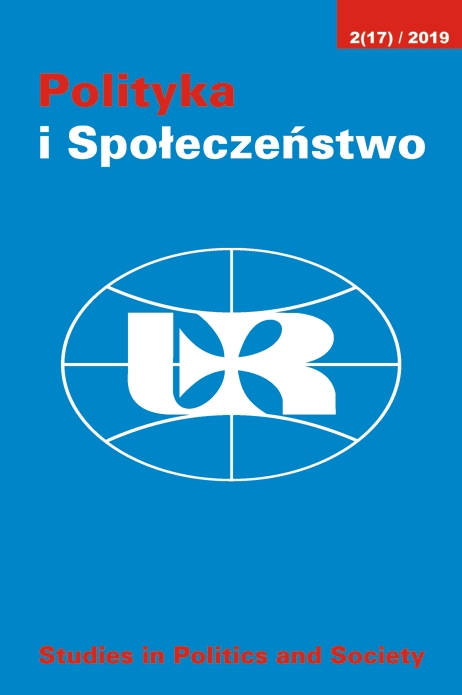Process of decentralisation and division of responsibilities in programming and realisation of public policies in Spain in the case of Catalonia
DOI:
https://doi.org/10.15584/polispol.2019.2.4Keywords:
autonomy, autonomous region, Catalan statute, regional competences, cultural politicsAbstract
In accordance with the Constitution of 1978, Spanish autonomous communities are “equipped with” all features of a composite state (regional parliament, government, autonomous administration) and function on the basis of autonomous statutes approved by the national parliament. The Catalan Statute of 19th July 2006 establishes the division of responsibilities, including exclusive regional competences (agriculture, culture, sport and tourism, spatial planning); shared competences (education, health care, environmental protection, industry, banks and insurances); and executive competences (waterworks, prisons system, intellectual property). The analysis of chosen competences in Catalonia will present the characteristics of autonomy and decentralization in Spain with reference to the attempts to create a regional model of programming and realization of public policies.Downloads
Published
2020-10-22
How to Cite
Kozłowska, M. (2020). Process of decentralisation and division of responsibilities in programming and realisation of public policies in Spain in the case of Catalonia. Studies in Politics and Society, 17(2), 50–64. https://doi.org/10.15584/polispol.2019.2.4
Issue
Section
Articles
License

This work is licensed under a Creative Commons Attribution-ShareAlike 4.0 International License.


